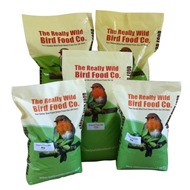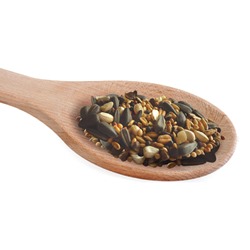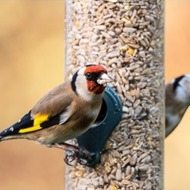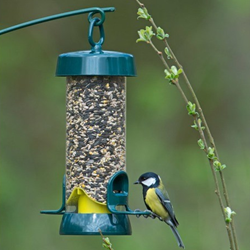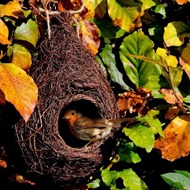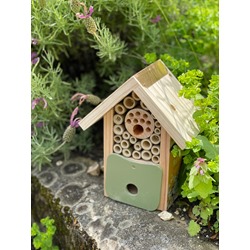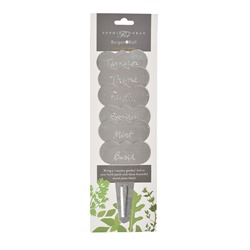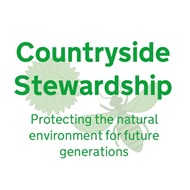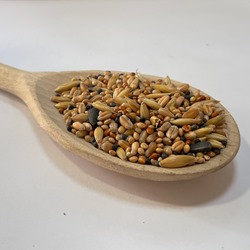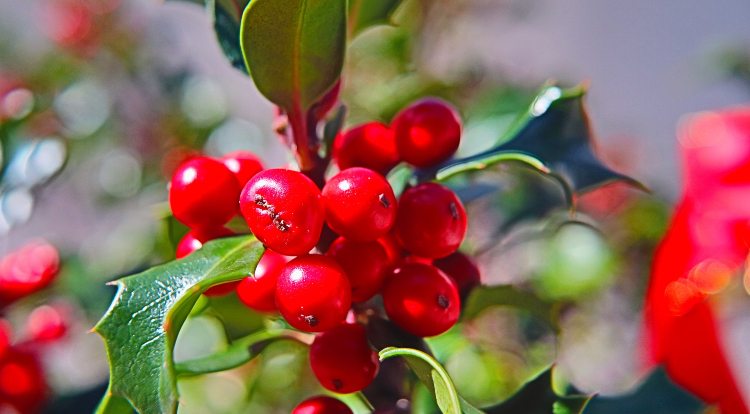
Winter is well on its way, and as autumn draws to a close, we’re seeing a lot of seasonal plants die down for the winter. One exception is holly - or to call it by its Latin name, Ilex aquifolium.
This iconic evergreen is commonly used to decorate homes throughout the winter season, the vibrant green leaves and the rich red berries bring a splash of colour to this bleak time of year.
Most people know not to eat holly berries – they are not edible for humans, and are considered to be dangerous if consumed in large quantities, particularly by children. However, if you’ve found your way to this blog, you’re probably wondering whether or not holly is poisonous to birds.
Do Birds Eat Holly Berries?
Many birds exist on a diet of berries and seeds – but what about holly berries?
Interestingly, birds can actually eat many berries that are toxic to other animals, including holly berries. Birds naturally possess a high toxic tolerance, and they just aren’t sensitive to the compounds in the berries that are poisonous to humans. Many birds can safely consume holly berries, including blackbirds, redwings, and thrushes.
There’s an old wives’ tale that if you see a bird eating a berry, it’s safe for humans to eat, but this absolutely isn’t true. Birds consume many plants that are poisonous to humans, holly berries included.
Although holly berries can be a good source of food for birds in the winter, due to the innate toxicity, birds can only safely consume a few at a time. It’s also worth noting that, although many wild birds can safely consume holly berries, they may not be safe for domestic birds.
During the winter months it is vital that birds have a reliable food source, ideally high in fats. While birds can eat holly berries, there are much better foods that birds should be eating this time of year. If you’d like to find out more about good winter feed options, check out our blog What to Feed Birds in Winter.
Shop Bird Food
If you have any further questions on wild bird feeding in winter – or anything to do with birds for that matter – reach out and contact us today. Our team of experts (including a registered vet!) will be more than happy to answer any questions you may have, and offer their expert guidance on how you can best support your local wildlife.
Contact Us
Read More: Looking After Pet Birds in Winter
 Back
Back Bird Foods
Bird Foods
 Seed Mixes
Seed Mixes Straight Seeds
Straight Seeds Mealworms & Worms
Mealworms & Worms Chicken Feed
Chicken Feed Duck Food
Duck Food Peanuts & Peanut Butter
Peanuts & Peanut Butter Suet & Fat Balls
Suet & Fat Balls No Mess Bird Seed
No Mess Bird Seed Wheat Free Bird Seed
Wheat Free Bird Seed Sunflower Seeds
Sunflower Seeds Softbill Bird Food
Softbill Bird Food Bulk Bird Seed
Bulk Bird Seed Trial Packs
Trial Packs Pick & Mix
Pick & Mix Mini Pick & Mix
Mini Pick & Mix Birdie Basics: Budget Bird Food
Birdie Basics: Budget Bird Food Food for Small Birds
Food for Small Birds Back
Back Bird Feeders
Bird Feeders
 Seed Feeders
Seed Feeders Peanut Feeders
Peanut Feeders Peanut Butter Feeders
Peanut Butter Feeders Suet & Fat Feeders
Suet & Fat Feeders Window Feeders
Window Feeders Hanging Feeders
Hanging Feeders Feeding Stations
Feeding Stations Ground Feeders
Ground Feeders Easy Clean Feeders
Easy Clean Feeders Bird Tables
Bird Tables Seed Trays
Seed Trays Bird Baths & Drinkers
Bird Baths & Drinkers Feeder Accessories
Feeder Accessories Feeder Hygiene
Feeder Hygiene Squirrel Proof Bird Feeders
Squirrel Proof Bird Feeders For the Kids
For the Kids Niger Seed Feeders
Niger Seed Feeders Mealworm Feeders
Mealworm Feeders Bird Food Storage
Bird Food Storage Fat Ball Feeders
Fat Ball Feeders Tube Feeders
Tube Feeders



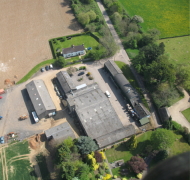 Our Farm
Our Farm
 Tips & Advice
Tips & Advice
Contact Us

